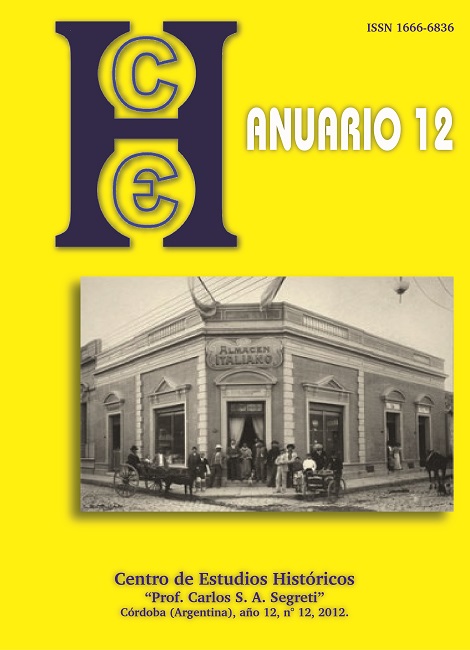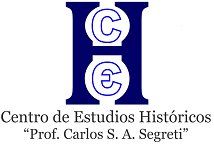Colonial ambition, anti-Spanish propaganda and the publishing market in Europe in the 16th-18th centuries. The cases of England and France in the dispute for America
DOI:
https://doi.org/10.52885/2683-9164.v0.n12.22703Keywords:
overseas expansion, Spanish Empire, travel literature, New WorldAbstract
Throughout the XVIth and XVIIIth centuries, English and French colonial expansion was marked by a rivalry with Spain of religious, political and economic extent. England and France designed strategies and patterns of settlement in the margins of the Spanish Empire that, beyond Spanish control, would enable geographic expansion and colonial occupation. Anti-Spanish accounts in travel narratives thus became one of the strategies used to promote the presence of such colonial powers in marginal areas of the colonial Iberian world. A detailed analysis of some of the narratives published in this period by both England and France suggests that whether the priority was the installation of strategic bases in America, the control of commercial routes, the development of religious settlements or the organization of expeditions of a more scientific and commercial approach, the struggle for the New World by means of the printed text was the best instrument to condemn the abuses of Spain and thus justify the colonial ambitions of England and France. Given this objective, the attempt to settle in Roanoke, the voyages of Anthony Knivet to the South Atlantic and the voyage to patagonic lands made by George Shelvocke (1719-22) will be analyzed for the English case. Regarding the French, special attention will be paid to the protestant projects in Florida and Brazil and the first French voyage around the world in 1766.
Downloads
References
BOUGAINVILLE Louis-Antoine de, Voyage autour du monde par la frégate du roi ‘la Boudeuse’ et la flûte ‘l’Étoile’; en 1766, 1767, 1768 & 1769, Paris, chez Saillant & Nyon, libraires, rue S. Jean-de-Beauvais. De l’imprimerie de Lebreton, premier imprimeur ordinaire du roi, 1771. Avec approbation et privilege du roi.
BRAUDEL Fernand, Le Monde de Jacques Cartier. L’aventure au XVIe sie?cle, Paris, Berger-Levrault, Montréal, Libre-Expression, “Introduction”, 1984.
BURUCÚA José Emilio y KWIATKOWSKI Nicolás, “El Padre Las Casas, de Bry y la representación de las masacres americanas”, Uadem Utraque Europa, núm. 10-11, 2011.
DE LE?RY Jean, Histoire d’un voyage fait en la terre du Brésil autrement dit Amérique contentan la navigation, de J.-C. Wagnières, Lausanne, Bibliothèque romande, 1972.
DUVIOLS, Jean-Paul “L’Amérique espagnole au XVIe siècle selon les récits de voyages”, Histoire, Économie et Société, 7e année, núm. 3, 1988.
ELLIOTT John H., “España y América en los siglos XVI y XVII”, BETHELL Leslie (ed.), Historia de América Latina, t. 2, Barcelona, Crítica, 1998.
FISHMAN Laura, “Old World Images Encounter New World Reality: Rene Laudonnière and the Timucuans of Florida”, The Sixteenth Century Journal, vol. 26, núm. 3, otoño de 1995.
GREER Margaret R., MIGNOLO Walter D. y QUILLIGAN Maureen (eds.), Rereading the Black Legend. The discourses of religious and racial difference in the Renaissance empires,Chicago, University of Chicago Press, 2007.
HADFIELD Andrew, Literature, Travel, and Colonial Writing in the English Renaissance, 1545-1625, N.Y., Oxford University Press, 1998.
HAKLUYT Richard (ed.), The Principall Navigations, Voyages, Traffiques and Discoveries of the English Nation, Londres, 1589.
HARIOT Thomas, “Breve y verdadero reporte de la nueva tierra de Virginia: de los recursos hallados y por desarrollar, así como también de los comercializables y otros” (Londres, 1588), GANDINI María Juliana, LÓPEZ PALMERO Malena, MARTÍNEZ Carolina y PAREDES Rogelio C., Fragmentos imperiales. Textos e imágenes de los imperios coloniales en América, siglos XVI-XVIII, Buenos Aires, Biblos, 2013.
LE CHALLEUX Nicolas, “Discurso de la historia de La Florida”, GÓMEZ TABANERA José Manuel (ed.), Franceses en la Florida, Madrid, Historia 16, 1991.
LESTRINGANT Frank, “Genève et l’Amérique: le rêve du Refuge huguenot au temps des guerres de Religion (1555-1600)”, Revue de l’histoire des religions,t. 210, núm. 3, 1993.
LESTRINGANT Frank, “The Philosopher’s Breviary: Jean de Léry in the Enlightenment”, GREENBLATT Stephen (ed.), New World Encounters, Berkeley and Oxford, University of California Press, 1993.
LINEBAUGH Peter y REDIKER Marcus, The Many-Headed Hydra: Sailors, Slaves, Commoners and the Hidden History of the Revolutionary Altantic, Boston, Bacon Press, 2000.
MARTÍNEZ Carolina y PAREDES Rogelio C., “Construyendo ultramar. Trabajo servil e intercambio intercultural en los relatos de piratas: Anthony Knivet y George Shelvocke (siglos XVI y XVIII)”, GANDINI Juliana, LÓPEZ PALMERO Malena, MARTÍNEZ Carolina y PAREDES Rogelio, Dominio y Reflexión. Viajes reales y viajes imaginarios en la Europa moderna temprana (siglos XV a XVIII), Buenos Aires, Ed. de la Facultad Filosofía y Letras, 2011.
PAGDEN Anthony, Señores de todo el mundo. Ideologías del Imperio en España, Inglaterra y Francia (en los siglos XVI-XVII y XVIII), Barcelona, Península, 1997.
PAREDES Rogelio, “Introducción”, KNIVET Anthony, Viaje por el Atlántico en el siglo XVI, Traducción de Rogelio C. Paredes, Buenos Aires, Facultad de Filosofía y Letras, 1995.
PAREDES Rogelio C., “Naturaleza colonial y experiencia bucanera. El conocimiento de América y los aventureros ingleses (1650-1700)”, Actas de Xº Jornadas Interescuelas/Departamento de Historia, San Carlos de Bariloche, octubre de 2009.
Sandys Williams VAUX (ed.), The world encompassed by Sir Francis Drake, being his next voyage to that to Nombre de Dios (1628), Londres, Hakluyt Society, 1854.
VAN GROESEN Michiel, The Representations of the Overseas World in the De Bry Collection of Voyages (1590-1634), Leiden y Boston, Brill, 2012.
Downloads
Published
Issue
Section
License
Aquellos autores/as que tengan publicaciones con esta revista, aceptan los términos siguientes:
- Los autores/as conservarán sus derechos de autor y garantizarán a la revista el derecho de primera publicación de su obra, el cuál estará simultáneamente sujeto a una Licencia de reconocimiento de Creative Commons. Se puede compartir, copiar, distribuir, ejecutar y comunicar públicamente la obra, siempre que: a) se cite la autoría y la fuente original de su publicación (revista, editorial y URL de la obra); b) no se use para fines comerciales; c) no se altere, transforme o genere una obra derivada a partir de esta obra.
- Los autores/as podrán adoptar otros acuerdos de licencia no exclusiva de distribución de la versión de la obra publicada (p. ej.: depositarla en un archivo telemático institucional o publicarla en un volumen monográfico) siempre que se indique la publicación inicial en esta revista.
- Se permite y recomienda a los autores/as difundir su obra a través de Internet (p. ej.: en archivos telemáticos institucionales o en su página web) después del proceso de publicación, lo cual puede producir intercambios interesantes y aumentar las citas de la obra publicada. (Véase El efecto del acceso abierto).









